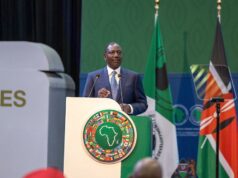
The European Commission has granted approval to Kenya’s Economic Partnership Agreement (EPA) with the European Union (EU), bringing the country one step closer to securing duty-free access for its goods to the extensive European market. The Commission, acting as the EU’s negotiator for trade agreements, has officially endorsed the EU-Kenya EPA and has forwarded it to the European Council for consideration. Before the deal becomes effective, it must clear two remaining hurdles: approval from the Council and the European Parliament.
In a statement released over the weekend, the Commission announced, “The EU-Kenya Economic Partnership Agreement (EPA) has today taken a step towards approval, with the Commission sending to the Council proposals for its signature and conclusion.”
Once signed, this agreement will provide a significant boost to Kenya, enabling its exports to enter the EU market without duties or quotas. The EU is Kenya’s second-largest trading partner and its most vital export market. Notably, Kenya is the sole member of the East African Community (EAC) without existing duty-free and quota-free access to the European market, as the other EAC countries are classified as least-developed nations.
This deal is an outgrowth of negotiations for an EPA involving EAC partner states, including Burundi, Kenya, Rwanda, Tanzania, and Uganda, which were finalized in October 2014. However, the EU-EAC EPA’s signing was delayed due to discussions within the EAC regarding its potential impact on their economies.
Initially, the EAC envisioned the EU-EAC EPA as a bloc-to-bloc agreement, meaning it could only enter into force after ratification by all EAC partners. Eventually, the EAC agreed that Kenya should engage in bilateral negotiations with the EU to implement the EPA, while other EAC countries like South Sudan and the Democratic Republic of the Congo, which joined the bloc in 2016 and 2022 respectively, could choose to join the agreement.
In 2022, total trade between the EU and Kenya amounted to €3.3 billion (Sh518 billion), marking a 27 percent increase compared to 2018. On June 19, 2023, Kenya and the EU concluded negotiations on this trade deal. Kenya primarily exports agricultural products such as tea, coffee, flowers, fresh beans, and peas to Europe.










